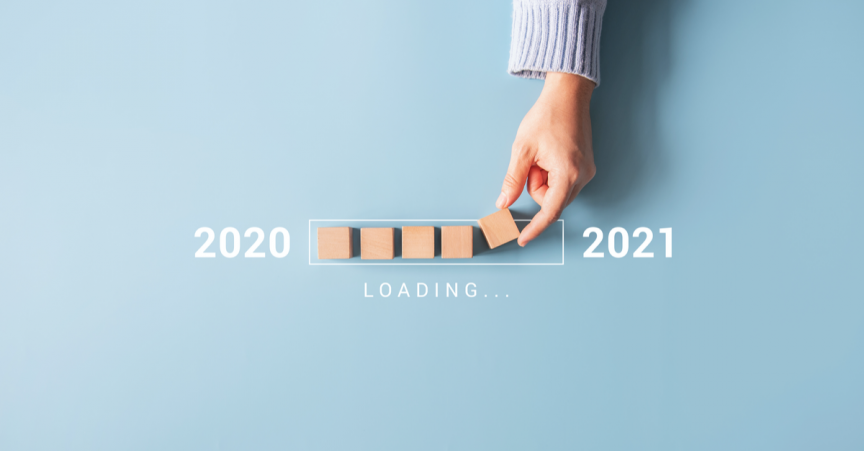Let’s face it; 2020 will go down as one of the most challenging years in business history. But for many companies, it was also a year of self-discovery. Perhaps no other time in the past century has the economy faced such turmoil, with the need for businesses to respond so expeditiously to wide-spread disruption. Are we going to let the lessons of 2020 go to waste?
Let January be the month to meet with your colleagues and employees to do some organizational reflecting and dreaming about the future by planning a two-day workshop called Reflect 2020 and Dream 2021!
Day One: Reflect 2020
Reflection is defined as “thinking carefully and deeply about something” (Oxford Dictionary). Depending on your company’s size, it can be challenging to involve the entire organization in a reflection exercise. There might be some eye-rolling, but these workshops can be a fun and exciting way to kick off a new year!
Get started by setting aside two half days in January for Reflect and Dream workshops throughout the company. Announce your workshop, give times and dates, train some group moderators, and order snacks or lunch to be available on the day. Make participation mandatory, especially within critical systems as in your supply chain or technical support teams. Emphasize that each individual experienced challenges and opportunities that could be vital to share across departments. For the Reflect 2020 workshop, ask employees to prepare to bring only their experiences of what 2020 was like for them as individuals, as members of their department, or within the external business environment. Remind them that this is an objective learning opportunity, not a time to complain. They should think about the organization as a system, with strengths and weaknesses, and not pinpoint individual failures.
On the day of the workshop, provide groups with a whiteboard or roll of butcher paper, colored pens, and sticky notes. If using whiteboards, require that photos be taken and given to the moderator for collection. When participants arrive, thank them, and reiterate the value of this experience to the organization. Here is one way to begin:
Ask groups to create a team name and record members. Next, have them draw a timeline from January through to December across the whiteboard or paper, leaving plenty of room to write vertical and horizontal lists. As a team, have them think back to January 2020 and, under each month, reflect over 2020 events. Vertically list responses to questions such as the following:
- What were some of the goals for each month/quarter in 2020, and how did we meet them?
- What events and circumstances made it impossible to meet some of our goals? What timeframe?
- To what and when did we most effectively pivot and adapt?
- Did the organization act or supply the support that made us feel it had our backs? To what and when did these occur?
- When were we most creative at solving a problem?
These are samples of the types of questions you might ask. Customize them for your specific situation and industry, but do not make them too focused. You want co-workers to cast a wide net around their insights during these interactive sessions. For a half-day session with debriefing, five or six questions should do. Allow time for discussion and sharing.
Day Two: Dream 2021!
Dream 2021! is about taking stock of the future and collecting ideas. It’s about leveraging the incredible learning that occurred when your company was tested to the brink in an unprecedented year. Schedule Day Twono farther than a week from the Day One session to support retention and allow time to reflect. Think about posing questions like:
- What strengths should we carry forward to 2021, and how can we build on those? (Strengths can be support, great morale, loyal customers, etc.).
- What systems changes or practices (e.g., work safety, IT upgrades, vendor reviews) should be kept, enhanced, or discarded in 2021?
- Did we create opportunities or efficiencies within our market, our industry, systems, or with customers?
- What were the most significant organizational learnings from 2020 that are worth sharing and implementing in 2021?
To wind up the reflect and dream workshops, get the groups together to re-imagine and design the kind of company they want to see in 2021 and onward. Is this the best time to change, and what do we need to do to get there?
Learning organizations never stop reflecting on the past and dreaming about the future. They learn from their mistakes and escalate toward opportunity. 2020 was an opportunity to gain experience in these critical skills: perseverance, patience, empathy, and change management. To recognize and celebrate what your company has experienced, invite your employees to share their learning and dreams for a more healthy and prosperous future!


